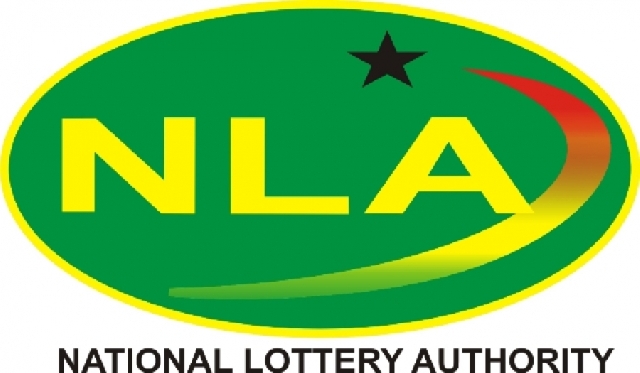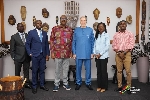KGL-NLA contract is most beneficial in NLA history – Razak Kojo Opoku
 NLA
NLA
Former Head of Public Relations at the National Lottery Authority (NLA), Mr. Razak Kojo Opoku, has strongly defended the existing contract between the Authority and KGL Technology Limited, describing it as the most valuable and beneficial partnership in the history of the NLA since its establishment in 1958.
In a detailed statement, Mr. Opoku dismissed ongoing criticism of the KGL-NLA agreement as misinformed and misleading, insisting the contract is fully backed by law, specifically the National Lotto Act, 2006 (Act 722) and the Lottery Regulations, 2008 (L.I. 1948).
“There is no legal violation whatsoever in the agreement between NLA and KGL.
The contract went through due legal processes and is ethically and legally sound,” he emphasised.
According to him, Section 2 and Section 4 of Act 722, along with various supporting clauses in both the Act and the Lottery Regulations, permit NLA to operate through third-party private companies like KGL.
He stressed that KGL is a licensed Online Lotto Marketing Company, not a state entity, and its operations align perfectly with the Authority’s legal framework.
Mr. Opoku explained that, unlike other third-party service providers, KGL contributes substantial revenue to the NLA without drawing any costs from it, and as such, remains the only private entity that consistently generates net positive income for the Authority.
He cited the contractual history of KGL, noting that its provisional and final licenses were signed by former NLA Directors-General and Board Chairpersons, including Kofi Osei-Ameyaw, Sammy Awuku, and Togbe Francis Nyonyo, demonstrating institutional legitimacy.
Responding to suggestions that the NLA could generate GHS 6–12 billion in annual revenue without KGL, Mr. Opoku called such claims unfounded and unrealistic, stating that even institutions like the Ghana Revenue Authority (GRA) or the Bank of Ghana (BoG) cannot project such earnings in a volatile sector like lottery.
He explained that the direct cost expenditures of NLA—including prize payouts, commissions to Lotto Marketing Companies, technical service fees, and telecommunications charges—consume about 84% of gross lottery revenue, leaving only 6% for the Authority itself.
“Without KGL’s consistent contribution, NLA would struggle to pay staff, settle debts, and fund operations.
Its exit would collapse the Authority,” he warned.
Mr. Opoku also highlighted the superior technological capacity of KGL, stating it is ISO-certified and operates under international standards, unlike NLA’s own internal systems, which he claimed are outdated and insecure.
He questioned the legality of other NLA third-party contracts and urged an independent forensic audit into agreements with entities such as Lots Services Ghana Limited, Simnet Ghana Limited, and Blue Star Lotto, many of which, he said, drain funds from the NLA without delivering comparable value.
Mr. Opoku further clarified that Private Lotto Operators, commonly referred to as Banker-to-Banker, should be licensed under Act 844 (VAG Act) rather than Act 722, a distinction he said was overlooked by previous administrations.
He noted that revenue from licensing these operators remains insignificant, generating less than GHS 30 million annually despite their dominance over 80% of the market share.
Mr. Opoku concluded by urging critics and “saboteurs” of the KGL-NLA contract to base their arguments on facts and the law, rather than speculation and media propaganda.
“The rants and demands for the cancellation of the KGL contract are laughable and unfounded. Any such move could cost the state over US$20 billion in judgment debt,” he warned.
He reiterated that the KGL-NLA partnership remains one of the best examples of effective public-private partnership (PPP), adding that KGL has never taken public funds nor burdened the NLA with costs.
Source: Classfmonline.com/Cecil Mensah
Trending Business

24-hour economy: Mahama announces round-the-clock port operations
15:36
Mahama unveils bold horticulture plans at Ghana Horticulture Expo 2025
14:33
Importers urge Bank of Ghana to fix exchange rate differentials at ports
17:03
Presidency launches national training roadmap for youth in poultry and livestock farming
16:39
Gov't announces changes to data bundle charges effective July 1
15:47
Ghana to host landmark Horticulture Expo today to showcase green economy potential
12:16
Turkish-Ghana investment forum highlights new trade opportunities, free zones
15:58
GIPC Endorses MTN Ghana’s $300 million investment drive
12:52
NPA boss appeals to Ghanaians to accept GHC 1 Fuel Levy: “It’s painful but necessary”
12:38
GPRTU threatens nationwide strike over GHS1 Energy Sector Levy
04:15



